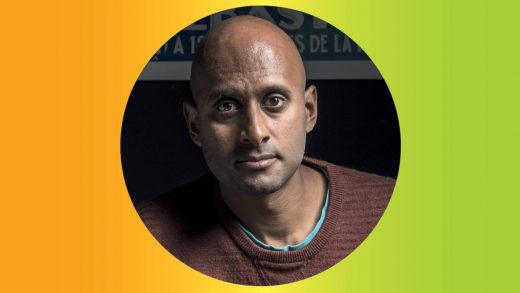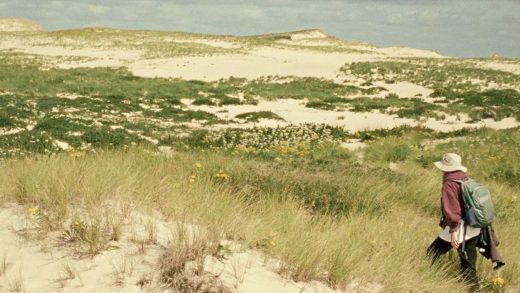:format(webp)/https://www.thestar.com/content/dam/thestar/entertainment/books/2023/06/02/summer-is-here-and-the-reading-is-amazing-these-are-the-20-best-books-to-pile-by-your-hammock/main_summer_books_guide_2023.jpg)
Summertime and the reading is … anything you want it to be, whether you turn to a book for escape or enlightenment. I’ve chosen a little more than 20 books — one for the 14 weeks of summer plus a bunch more to get you through long weekends — that should have something for most readers. Some are already out, others are being released throughout the summer to keep a fresh stock of new reads at the ready.
Fiction
“The impostors,” Tom Rachman (Random House, June 27): From the Canadian author of bestselling “The Imperfectionists” and “The Italian Teacher,” is this slightly meta novel about an aging writer working on her final novel alone in her London home during the pandemic. Bookended with chapters simply titled ‘The Novelist’ the relationships and anecdotes revealed in between help it become a story about the power of art and what we leave behind.
“The Librarianist,” Patrick deWitt (July 4, House of Anansi): The latest from award-winning Canadian writer deWitt, of “The Sisters Brothers” fame, is an homage to introverts. Bob Comet is a retired librarian in Portland, Oregon, who begins volunteering at a seniors centre; as his daily life is lived, his story unfolds with wit, pathos and a celebration of the ordinary.
“Lump,” Nathan Whitlock (July 18, Dundurn Press): From Toronto — now Hamilton — writer Whitlock, whose previous work includes “Congratulations on Everything,” writes about Cat who, in one really bad day, finds out she’s pregnant and discovers a lump in her breast is malignant. Her marriage is failing and her efforts to escape it all create more chaos. Gallows humour along with observations about family and class.
“The African Samurai,” Craig Shreve (Aug. 1, Simon & Schuster): Even before it’s been published, the Toronto author’s second book has already been optioned by Netflix, with Forest Whitaker attached to the movie, according to his publisher. This historical novel imagines the life of Yasuke, the African slave who became Japan’s first foreign-born and only Black Samurai, and is set in late 16th-century Africa, India, Portugal and Japan.
“Yellowface,” R.F. Kuang (HarperCollins): Satire that skewers the publishing industry, representation, commodification of art — you get the idea — and everyone’s been raving about it since it came out. When her Asian friend Athena dies, white writer June finds her finished, but not submitted or published, book about an episode in Chinese history and tries to pass it off as her own. Smart and timely take on diversity, racism, cultural appropriation.
“The Spirits Have Nothing to Do With Us,” Dan K. Woo (Wolsak & Wynn): A collection of Chinese and Canadian fiction that begins with a novella, “Lonely Face Club,” by Chinese writer Bingji Ye and translated by Woo, and goes on to include eight more short stories from Chinese Canadian writers. The stories are representative of, as Woo suggests in his introduction, an alternative world view, one that has been finding voice in short stories.
Non-fiction
“The Art Thief,” Michael Finkel (June 27, Knopf Canada): This is the true story of one of the last century’s most prolific art thieves, Stéphane Breitwieser, who carried out more than 200 art heists over eight years from museums and cathedrals across Europe. He didn’t try to sell them; instead, he had stolen them for his own pleasure: to hang or display so he could look at and admire them. Heist and art stories seem to be having a moment. Along with Finkel’s, another highly anticipated saga — though this one is fiction, not non-fiction — is “Loot” by Tania James (June 13, Knopf), which examines colonialism and its effects through the lens of plundered art. And young adult fiction fans get “Breaking In” by Tyler Schwanke (Blackstone), a tribute to Hollywood heist movies wrapped in the story of an aspiring director whose idea is stolen and made into a movie — and their efforts to steal it back and hold it for ransom before it runs.
“Truth Telling: Seven Conversations About Indigenous Life in Canada,” Michelle Good (HarperCollins): In her novel “Five Little Indians,” Good explored the lasting effects of residential school on Indigenous lives, through five characters drawn “with enormous compassion and without judgment,” our reviewer noted. This book of essays explores Indigenous experience in Canada, myths in the country’s history, and the things necessary for “meaningful and substantive reconciliation.”
Diversions
“Small Fires: An Epic in the Kitchen,” Rebecca May Johnson (June 6, Pushkin Press): Debut book that explores cooking and kitchens as sources of pleasure, constraint (complying with directions, tying on apron strings) and revolution. As a summer read, when we’re cooking in different ways and sharing with others, it offers an interesting lens through which to view how and what and why we cook, and the intimacy of sharing a meal.
“Canadian Literary Fare” by Nathalie Cooke and Shelley Boyd with Alexia Moyer (McGill-Queen’s University Press) considers how food and cooking and eating have been presented in Canadian books. From beaver in Tomson Highway to “Burn Sugar” in NourbeSe Philip’s “Making Black Cake in Combustible Spaces,” the importance of food choices and what they represent makes for entertaining reading.
“All Things Move,” Jeannie Marshall (Biblioasis): In case you have a sense of wanderlust but aren’t able to indulge it yourself, Marshall’s book, subtitled “Learning to Look in the Sistine Chapel,” is a meditation on how lives can be changed by art; and guides us through how she learned how to truly see Michelangelo’s work, and what it has to tell us about life and art.
“How to Clean a Fish: And Other Adventures in Portugal,” Esmeralda Cabral (University of Alberta Press): From Toronto writer Cabral, a charming memoir about bringing her family for a visit to her native Portugal, from where she and her birth family immigrated to Canada in 1969, and her efforts to engage with her culture (and carry on certain traditions) by somehow learning to clean a certain type of small fish.
Mystery and True Crime
“Crook Manifesto,” Colson Whitehead (July 18, Doubleday Canada): This is the second instalment in Pulitzer-winning New York author Whitehead’s Harlem series of crime fiction novels. His last, “Harlem Shuffle,” visited the 1960s; this one recreates 1970s New York and features the unforgettable main character Ray Carney.
“The Whispers,” Ashley Audrain (June 6, Penguin Canada): Following on the heels of Audrain’s wildly successful, internationally bestselling debut novel “The Push,” comes “The Whispers.” Where the first book had at its heart expectations around family and motherhood, this one explores family relationships, envy, desire and intuition after a neighbourly summer barbecue explodes in drama, and the subsequent repercussions.
“Standing in the Shadows,” Peter Robinson (McClelland & Stewart): This is, sadly, Robinson’s final novel — the 28th and last instalment in the Detective Superintendent Alan Banks series — due to the beloved mystery writer’s untimely passing in October 2022 (he was born in England but lived in Toronto). In this case, a student’s ex-girlfriend is murdered and her new boyfriend goes missing in 1980; in 2019, a skeleton is found, as past and present unite.
“I Got a Name: The Murder of Krystal Senyk,” Eliza Robertson with Myles Dolphin (Penguin Canada): Vancouver-born writer Robertson is best known for her fiction, including her debut short-story collection “Wallflowers,” but in her latest book she investigates a cold case: Krystal Senyk was threatened and harassed for months on end by Ronald Bax after helping his wife (her best friend) leave his abuse; he threatened Senyk, she told the RCMP, who brushed her off; she was found murdered and Bax disappeared.
Beach Reads
“Much Ado About Nada,” Uzma Jalaluddin (June 13, HarperCollins): Jalaluddin — we worked closely together when she wrote a parenting column for the Star — has built on her love of and success with writing romance novels that centre Muslim characters, including “Hana Khan Carries On.” Her latest is inspired by Jane Austen’s “Persuasion.”
“Sunshine Nails,” Mai Nguyen (July 4, Simon & Schuster): Toronto journalist Nguyen’s debut novel is about a Vietnamese family who owns a family-run, no-frills nail salon in Toronto, only to watch a big chain salon open across the road, threatening their livelihood, and the lengths they’ll go to keep their business going.
“Meet My at the Lake,” Carley Fortune (Penguin): Nothing says summer to some people like time spent outside the city, at the cottage or cabin by the lake. Fortune’s second novel — her first “Every Summer After,” was also set in the Muskoka area of Ontario — is born of wanting to escape through her writing during a difficult time in her life and follows Will, who shows up nine years late for a planned encounter with Fern.
Fortune joins other Canadian writers in a growing stack of books for summer entertainment and escapism, including Chantel Guertin, whose recently released “Two for the Road” (Doubleday) is about a romance bookshop owner who embarks on a fateful 10-day tour bus tour of England.
JOIN THE CONVERSATION
does not endorse these opinions.
:format(webp)/https://www.thestar.com/content/dam/thestar/entertainment/books/2023/06/02/summer-is-here-and-the-reading-is-amazing-these-are-the-20-best-books-to-pile-by-your-hammock/the_imposters_book_cover.jpg)
:format(webp)/https://www.thestar.com/content/dam/thestar/entertainment/books/2023/06/02/summer-is-here-and-the-reading-is-amazing-these-are-the-20-best-books-to-pile-by-your-hammock/the_librarianist.jpg)
:format(webp)/https://www.thestar.com/content/dam/thestar/entertainment/books/2023/06/02/summer-is-here-and-the-reading-is-amazing-these-are-the-20-best-books-to-pile-by-your-hammock/lump_by_nathan_whitlock.jpg)
:format(webp)/https://www.thestar.com/content/dam/thestar/entertainment/books/2023/06/02/summer-is-here-and-the-reading-is-amazing-these-are-the-20-best-books-to-pile-by-your-hammock/the_african_samurai_book_cover.jpg)
:format(webp)/https://www.thestar.com/content/dam/thestar/entertainment/books/2023/06/02/summer-is-here-and-the-reading-is-amazing-these-are-the-20-best-books-to-pile-by-your-hammock/yellowface_book_cover.jpg)
:format(webp)/https://www.thestar.com/content/dam/thestar/entertainment/books/2023/06/02/summer-is-here-and-the-reading-is-amazing-these-are-the-20-best-books-to-pile-by-your-hammock/thespiritshavenothingtodowithus_540x.jpg)
:format(webp)/https://www.thestar.com/content/dam/thestar/entertainment/books/2023/06/02/summer-is-here-and-the-reading-is-amazing-these-are-the-20-best-books-to-pile-by-your-hammock/the_art_thief_cover_image.jpg)
:format(webp)/https://www.thestar.com/content/dam/thestar/entertainment/books/2023/06/02/summer-is-here-and-the-reading-is-amazing-these-are-the-20-best-books-to-pile-by-your-hammock/final_us_front_cover_small_fires.jpg)
:format(webp)/https://www.thestar.com/content/dam/thestar/entertainment/books/2023/06/02/summer-is-here-and-the-reading-is-amazing-these-are-the-20-best-books-to-pile-by-your-hammock/canadian_literary_fare_book_cover.jpg)
:format(webp)/https://www.thestar.com/content/dam/thestar/entertainment/books/2023/06/02/summer-is-here-and-the-reading-is-amazing-these-are-the-20-best-books-to-pile-by-your-hammock/all_things_move_book_cover.jpg)
:format(webp)/https://www.thestar.com/content/dam/thestar/entertainment/books/2023/06/02/summer-is-here-and-the-reading-is-amazing-these-are-the-20-best-books-to-pile-by-your-hammock/how_to_clean_a_fish_book_cover.jpg)
:format(webp)/https://www.thestar.com/content/dam/thestar/entertainment/books/2023/06/02/summer-is-here-and-the-reading-is-amazing-these-are-the-20-best-books-to-pile-by-your-hammock/the_whispers_cover_image.jpg)
:format(webp)/https://www.thestar.com/content/dam/thestar/entertainment/books/2023/06/02/summer-is-here-and-the-reading-is-amazing-these-are-the-20-best-books-to-pile-by-your-hammock/standing_in_the_shadows_cover_image.jpg)
:format(webp)/https://www.thestar.com/content/dam/thestar/entertainment/books/2023/06/02/summer-is-here-and-the-reading-is-amazing-these-are-the-20-best-books-to-pile-by-your-hammock/i_got_a_name_cover_image.jpg)
:format(webp)/https://www.thestar.com/content/dam/thestar/entertainment/books/2023/06/02/summer-is-here-and-the-reading-is-amazing-these-are-the-20-best-books-to-pile-by-your-hammock/much_ado_about_nada.jpg)
:format(webp)/https://www.thestar.com/content/dam/thestar/entertainment/books/2023/06/02/summer-is-here-and-the-reading-is-amazing-these-are-the-20-best-books-to-pile-by-your-hammock/sunshine_nails_book_cover.jpg)
:format(webp)/https://www.thestar.com/content/dam/thestar/entertainment/books/2023/06/02/summer-is-here-and-the-reading-is-amazing-these-are-the-20-best-books-to-pile-by-your-hammock/meet_me_at_the_lake.jpg)
:format(webp)/https://www.thestar.com/content/dam/thestar/entertainment/books/2023/06/02/summer-is-here-and-the-reading-is-amazing-these-are-the-20-best-books-to-pile-by-your-hammock/two_for_the_road.jpg)



